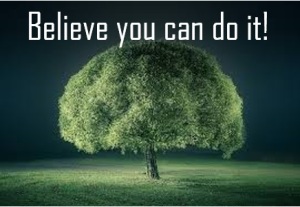It’s all about our perspective
Following a conversation I had with a taxi driver today and a recent coaching session with a client I have been reflecting and remembering the importance of perspective and how it can rule our lives.
According to the Oxford Dictionary we can define Perspective as: a particular attitude towards or way of regarding something; a point of view.
In simple terms I like to also call perspective: Our bias. Or in NLP (Neuro-Linguistic-Programming) terms: our map of the world.
In everyday life, at work, watching TV, at the supermarket etc., we come across people we believe to be nice or not. Other times we feel we have known someone forever when in reality we just met them. But why?
As we grow, our subconscious mind, records and keep an inventory of all things that have happened to us, as well as what we have done. Consciously we are unaware of what is happening at this level. From a very early age, our innate intelligence, or as other arguably would say our survival instinct kicks in and we form our personality; attitudes and behaviors that determine how we respond to everything around us.
But what if I was to tell you that it is all a mirage, a non existent belief we developed to get by; survive in a nut shell.
When we meet someone who triggers something in us, we feel anger, anxiety or sadness towards them, that feeling isn’t there, we put it there, we access a previous memory similar to what we are seeing/feeling/hearing and we translate it as anger. anxiety, etc.
So, how can we change this?
Easily, first of all, and it is perhaps the most difficult thing to do and that is to admit we need to change something about us or in us. Secondly, it is making a decision and commitment to change.
From there you find tools and exercises that resonate with you, and essentially what you want to do is to replace the habit you have, created or adopted (I also call these habits, beliefs), and introduce a counteracting habit. For example, if you have the perception or belief people in front of you at the checkouts are too slow; a good way to change it would be by trying to understand why you think they are too slow? Is it that you just buy essentials? And they are doing big shoppings? Do they have children? Are they elderly people?
Once you analyse the situation in depth, find ways to counterbalance these elements. If you find you are buying less things than the people in front of you, try going to a different checkout, shopping at different times or simply buying more things and less regularly.
The more you exercise your beliefs by analysing them, trying to understand them (their positive intention) and work with them rather than against them, you will find how beneficial it is, and you will realise you are in control of every situation, rather than situations control you.
Love,
Jorge

No comments:
Post a Comment